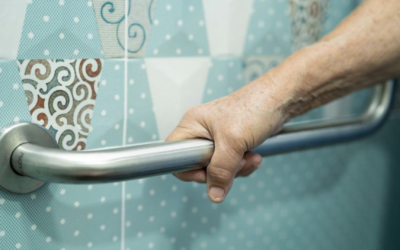We are pleased to announce that Colorado Lieutenant Governor Primavera signed a series of bills to promote accessibility including HB23-1296 Create Task Force Study Rights Persons Disabilities, HB23-1032 Remedies Persons With Disabilities, and HB23-1136 Prosthetic Devices For Recreational Activity, in her capacity as acting governor. This is a tremendous victory for all people with disabilities in Colorado! Below are brief descriptions of each bill as outlined by the colorado.gov website.
HB23-1296 Create Task Force Study Rights Persons Disabilities
BILL SUMMARY
The bill creates the task force on the rights of Coloradans with disabilities (task force) in the Colorado civil rights commission. The task force shall create a minimum of 4 subcommittees to study and make recommendations on specific issues related to persons with disabilities:
The rewrite subcommittee, which must study and make recommendations concerning the various issues related to the rewrite and modernization of the Colorado Revised Statutes concerning civil rights of persons with disabilities;
The outdoors subcommittee, which must study and make recommendations related to the basic accessibility of outdoor spaces for persons with disabilities;
The housing subcommittee, which must study and make recommendations related to the affordability, accessibility, and attainability of housing for persons with disabilities; and
The government subcommittee, which must focus on basic physical and programmatic accessibility within state and local government.
Minimum mandatory membership and reporting requirements are outlined for the task force and each subcommittee. The task force shall produce a final report, including recommendations, to submit the governor and general assembly on or before January 30, 2025.
HB23-1032 Remedies Persons With Disabilities
BILL SUMMARY:
The bill establishes that a person must first exhaust the proceedings and remedies available to them before filing an action in district court based on an alleged discriminatory or unfair practice related to certain employment practices, housing practices, or discriminatory advertising.
The bill prohibits an individual with a disability from being excluded from participation in, or denied the benefits of services, programs, or activities provided by a place of public accommodation.
Lastly, the bill requires that, in certain civil suits, an individual with a disability is entitled to a court order requiring compliance with applicable provisions along with either actual monetary damages or a statutory fine.
HB23-1136 Prosthetic Devices For Recreational Activity
For the purposes of health insurance coverage for a prosthetic device (device), the bill requires a health insurance carrier to provide coverage for an additional device for a covered person under 26 years of age if the covered person’s treating physician determines that the additional device is necessary for the covered person to engage in physical and recreational activity and to maximize the covered person’s upper limb functions.





